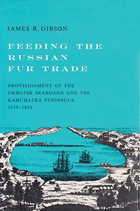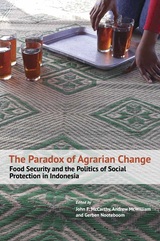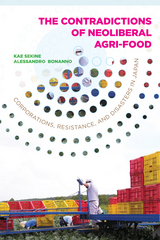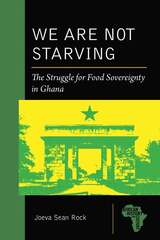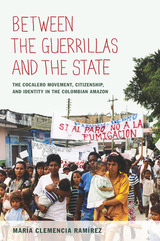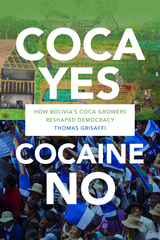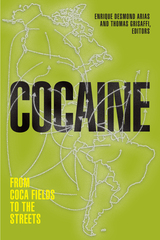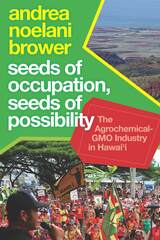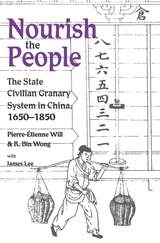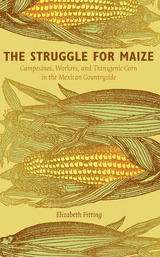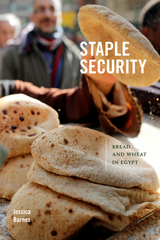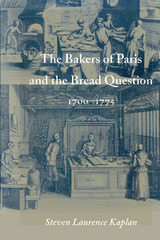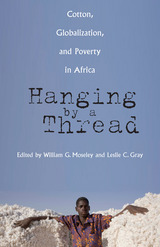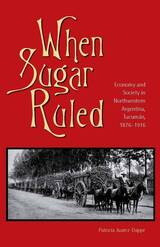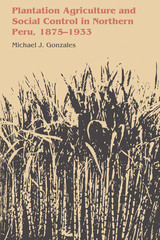“The Struggle for Maize is an important book about a crucial topic, the debate over the dissemination of genetically modified (GM) corn in Mexico, the crop’s biological center of origin. The debate is significant because the more the modern varieties of corn become disseminated, the more biological diversity is lost, as that diversity depends on the traditional corn varieties cultivated by peasants. Elizabeth Fitting gives us an excellent account of the various positions in the GM corn debate and the connections between international processes and local Mexican communities.”—Gerardo Otero, editor of Food for the Few: Neoliberal Globalism and Biotechnology in Latin America
“Through the case of Mexican maize, Elizabeth Fitting brings fresh insights and sharp analysis to bear on two of the most important and controversial issues in contemporary development studies: the politics of food and GM technology. All of those who are interested in the politics of food and food sovereignty, knowledge, and technology in Mexico and beyond, especially in the context of raging debates about persistent food crises and the future of the peasantry, should read this brilliant book.”—Saturnino M. Borras Jr., co-editor of Transnational Agrarian Movements: Confronting Globalization
“[A]n important addition to much more than the ethnographic study of agriculture and the Mexican countryside. . . . This outstanding book is part of a new wave of anthropological scholarship. Fitting combines the strengths of rich local ethnographic work without losing sight of the global nature of agricultural change. . . . Fitting’s book should find a large audience that includes anthropologists, development specialists, those interested in the role and place of genetically modified crops and food studies, as well as specialists in Mexican and Latin American studies.”
-- Jeffrey H. Cohen Journal of Anthropological Research
“This is a timely contribution that deserves attention... The clear organization of the text and its lucid prosemake it appropriate for use in upper-level undergraduate and graduate courses such as rural studies, globalization, political ecology, anthropology of food, and social movements, and for those interested in GM foods.”
-- Alison Elizabeth Lee Journal of Latin American and Caribbean Anthropology
“Elizabeth Fitting’s book is an important and lucid contribution to understanding the latest turn in Mexico’s long debate over its food system, cultural identity, and national economy...No other analysis presents the national debate about transgenic maize and its political and cultural contexts with the acuity of Fitting’s book.”
-- Stephen Brush American Anthropologist
“The Struggle for Maize deals with the resilience of corn as a crop and commodity and as a cultural practice, despite the challenges presented by a globalized economy that has introduced GMO corn varieties into Mexico. Depending on one's point of view, GMO may have accrued some economic benefits here and there in the country (but certainly not in San José Miahuatlán), but the agricultural, social, and environmental harms it has presented, Fitting argues, outweigh those benefits. And her book is successful in showing that, and thus is an important contribution to that ongoing debate.”
-- Sterling Evans H-Environment, H-Net Reviews
“[A] timely, well-researched and extremely readable book . . . Fitting has intervened with an incisive critique of conventional agricultural development in Mexico, specifically showing how the discourse of scientific expertise is used to discredit other kinds of knowledge and equally valid concerns about the cultural effects of transgenic crops. The Struggle for Maize—a snapshot of the state of the agriculture/development debate in Mexico and a brilliant gathering together of literature on the topic—stands as both a corrective and a rebuke to such dismissals and exclusions.”
-- Alice Brooke Wilson Human Ecology
“Working across scale and over time, The Struggle for Maize provides a multidimensional perspective on the GM corn debates, which Fitting effectively demonstrates are about much more than crop varieties. . . . The Struggle for Maize succeeds at coalescing a wide array of perspectives and data around the central issue of the role of corn agriculture in Mexico. With Fitting’s engaging and accessible writing style, the pages turn easily even as they deliver dense and stimulating content.“
-- Eric Casler Rural Sociology
“Fitting has written an insightful book that urges us to ponder the future of farming in and beyond Mexico. Its fresh take on getting to the background history of the food on our plates will be of use to those interested in food safety, food policy and food security, as well as to scholars of labour, peasant studies and the history of Mexico.”
-- Gabriela Soto Laveaga Journal of Latin American Studies
"This ethnography is alive with possibility and is written to make it readable and compelling for undergraduate and graduate classes and for many kinds of students, scholars, and audiences. Fitting is a master at connecting dots, putting pieces together, linking here and there, this and that, and listening to the world in ways that upend the given commonsense about industry and agriculture."
-- Peter Benson Ethnohistory

